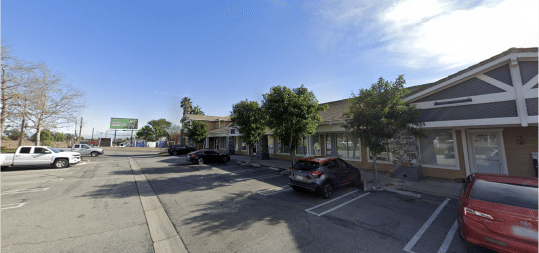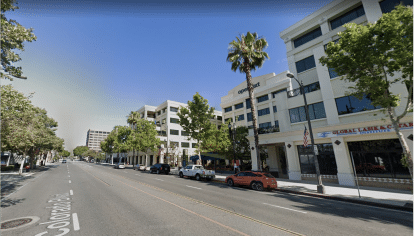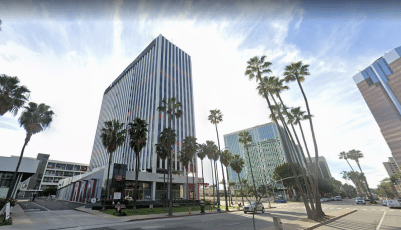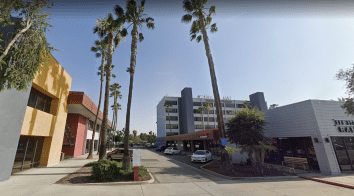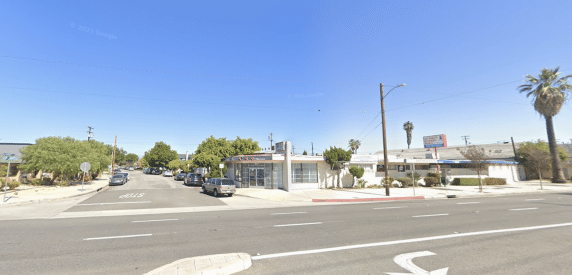
Due to the high amount that courts typically request, the bail posting process frequently places arrestees under severe financial strain. Some may even choose to remain in custody upon establishing that they cannot raise the amount expected in exchange for their release. However, thanks to the services provided by CBB Bail Bonds, you can maintain your freedom due to insufficient funds.
We understand that the bail bonds process at a local Orange County jail like Brea can be confusing. Fortunately, our bail bond company is here to help you. Our bail bond agent will walk you through the process, helping you escape the Brea Police Department jail as quickly as possible. Learn more about bond and cash bail below. Then, contact our bail bond agents for help releasing you or a family member from a Brea City jail.

Due to the large amounts that courts want, the bail posting process sometimes places arrested people in extremely difficult financial situations. Some may even decide to stay there when they cannot raise the required amount to be released from custody. However, thanks to the services provided by CBB Bail Bonds, you can maintain your freedom due to insufficient funds.
The primary factor to remember when posting bail is that it is a payment made as security for your release. Therefore, the court will impose some conditions before authorizing your exit from jail. At the same time, you will need to complete the bail transaction within the stipulated period for the court to allow your release.
Any non-compliance with the court's requirements will result in forfeiture of your bail amount and a possible re-arrest. This often arises after an officer reports your matter before the presiding judge and provides details of your non-conformity. You will face additional repercussions if the judge verifies the statements and finds them true.
Remember that you can post bail using several transaction options discussed below. As a result, you are free to explore a method most suitable for you to avoid any hardships or setbacks. However, your decision should be well-informed so that you will have access to the best benefits when posting bail.
The bail process begins with an arrest after a law enforcement officer suspects you of criminal activity. The officer must form probable cause connected to your actions, leading to a justified arrest. A probable cause often entails catching you in the process of breaking the law. However, some circumstances involve acting on the complainant's report after you cause them harm. The officer will check for any outstanding warrants as well.
Soon after your arrest, you will proceed to the nearest police detention center for further questioning as part of the criminal justice system. You will also undergo a booking process to help the arresting officer obtain vital information about you.
The officers expect your cooperation during booking, mainly because you will provide the most details. Your compliance can make a significant difference at the time of your release, as it speeds up the events leading to posting bail.
Some important details collected during the booking process include your full name, date of birth, and current residential address. The officers collect these details for future reference if they need to contact or identify you.
You will need to provide information on your identification card details, phone number, and other contact information for the same purposes. The officers may also require you to state your current place of work in case they need to access your employment records. Although rare, they may investigate your workplace to determine the validity of your working citizenship claims.
Lastly, the officers collect biodata to help further identify you. You can expect to have your fingerprints taken for record-keeping. They will also capture images commonly known as mugshots to describe your physical appearance accurately. Additional details, like the color of your hair and eyes, are also recorded.
Upon completing the booking process, the detention officers will inform you of the approximate amount payable when posting bail for your accused offense. They refer to a bail schedule available in all detention centers and court facilities. Under the schedule, you will find all chargeable offenses and their monetary categories.
Typically, minor offenses require you to post a lower amount as bail when requesting your release than more serious crimes. You should also note that the schedule provides amounts within a range. For example, the bail payable for your offense may be between $5000 and $100,000. You must attend a bail hearing and have the presiding judge determine the exact amount to post in exchange for your freedom. We are here to help you meet your bail bond needs. Reach out to a bail bondsman from our team for help in Brea or Santa Ana.

You will proceed to a hearing when you complete the booking process and determine the approximate amount payable in bail. The law dictates that arresting officers must process your court arraignment for a bail hearing within twenty-four hours of your arrest. However, some circumstances may push the court date further due to weekends or holidays in between. If so, you can request immediate arrangements when the court resumes its sitting.
The bail hearing is a fairly short proceeding involving entering a plea and learning the amount required for your release. You should understand the charges pressed against you so that you can decide on a plea. The presiding judge reads the allegations from the police file in court and then asks if you are guilty.
Should you plead guilty, the matter is fast-tracked to a judgment. In most cases, you will receive the court directions within a few days of your first court arraignment. You may request a free bond release or remain in custody for the duration.
On the other hand, parties that plead not guilty for the read offenses will face a longer bail hearing. This is because denying the charges attracts further court proceedings, including a pre-trial conference, to help you prepare for the main trial. Your release on bail will be considered against various factors to ensure you are released on merit. Due to this, you want to work with an experienced Brea bail bonds agent to guide you through the experience.
Before receiving the final bail amount payable for court release, the judge considers the following factors:

The type of crime you are accused of impacts whether you are granted bail and, if so, how much you need to pay to get released. For example, someone accused of shoplifting is likely to have a lower bail amount when compared to someone accused of rape or murder.
The thought behind this is that the defendant could cause discomfort in the community. In addition, the individual may try to flee the jurisdiction if released. The goal is to encourage the individual to stay in the area pending trial while also protecting the community. The nature of your offense may also involve the aggravating or mitigating factors accompanying the illegal actions.
Naturally, aggravating factors lead to additional penalties, including an enhanced bail release amount for the accused. Extreme situations may even result in denial of bail, typically reserved for capital offenses, such as murder. On the other hand, mitigating factors can influence the judge to reduce your bail amount to the minimum, as the nature of the alleged crime will be less severe.
Any person with a pending court matter should always observe the court's jurisdiction. Moving outside the court's jurisdiction is a punishable offense that can result in further detention. Your court appearance will ensure the court process is completed on time, resulting in prolonged trial durations. You will be disadvantaged because of the extended period pending a final determination.
Most presiding judges will order the accused to surrender their passports, credit cards, and any other travel documents to the court. The relevant court official will then hold the documents in safe custody until the matter concludes or you are no longer a flight risk. Further communication between the court and all exit points, like airports and borders, may also be made. Therefore, if you plan to flee the country, do not. Stay for your day in court. You are entitled to an attorney and a strong defense.
The type of offense you face can affect the community and ultimately influence the judge's determination on your release. For example, if you are accused of violent offenses that endanger the community's well-being, you are less likely to receive orders for release on bail. This is because regaining your freedom may attract panic or unrest within your community.
Additionally, your safety may be at risk due to the afflicted person's need for personal vengeance against the committed offense. You may also be exposed to unforeseen attacks as the general community tries to display their discontent with your criminal actions.
If so, the judge may issue orders to deny your release on bail until the judge is satisfied with the safety you will receive. They will do this to conclude the criminal matter with minimal interruption. Protecting your safety and your life is an essential constitutional right that should always be observed.
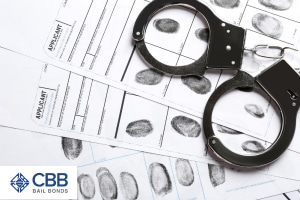
The judge will also inquire about your criminal history to determine whether you are eligible for release on bail. This stems from the assumption that most past offenders may potentially engage in additional unlawful activities if released without proper justification. The information collected during the booking process will be essential in providing additional details on whether you have a past criminal record.
Once the judge verifies your status, they will issue orders accordingly. You should note that a past offender should not be automatically denied bail based on their history. Presiding judges assess the nature of previous and current charges. If your release is reasonably believed to be harmless to society, you can contact your Brea bail bonds agent to post bail.
After the judge grants bail, they will provide the payment guidelines for completing the transaction. You can explore several payment methods depending on your access to money and trusted third parties who can help complete the transaction.
One of the available payment methods is posting bail through direct cash payments. While you may consider the option convenient and straightforward, remember that the court will scrutinize your source of funds. You can expect additional scrutiny if the allegations in court relate to crimes with lucrative returns.
This is because you are highly likely to use the proceeds of crime to secure your release. If the court were to accept the payments, it would defeat the justice system and encourage further involvement in the crimes. You should also note that making cash deposits may create additional delays and inconveniences.
Firstly, you will have to wait until the court cashes in your check before you are processed for release. You may need to present a bank agent to verify that they authorized the transaction. As a result, consider making cash payments to avoid additional scrutiny.
The second option involves signing a bond agreement with the court, where you present ownership documents in exchange for your freedom. The collateral may be lost in court non-appearance or violation of other regulations. Using a bond agreement is a viable option, but it can create devastating losses for those who sign the highly valuable property to the court. Consider and weigh your options before deciding.
Working with a Brea bail bonds agent is your best option, especially as a first-time offender. The assistance you receive will be advantageous in helping you exit jail without facing financial pressure. Your bail bonds agent will also be conversant with the criminal procedure applicable to your case, making it easier to apply. Hence, after collaborating with the assigned bail bonds agent, you can expect to exit jail as soon as possible.
The bail bonds agent assigned to your case should handle the release and payment process beforehand to help you regain your freedom. You can then discuss the payment terms applicable for proper company reimbursement. Please note that each service provider presents different payment policies you want to adhere to for a lasting professional relationship.
Most bail bond service providers in California charge a standard 10% service rate for their assistance in posting bail. This means your total charge is a fraction of the court's asking price, which is a significant benefit. If the percentage fee is still unobtainable, you can request a reasonable payment plan.
Your Brea bail bonds agent is happy to consider your circumstances and requests before processing an amicable payment agreement. Once the transaction is complete, you and the bail bonds company will have fulfilled your obligations and will be free to continue acting in your capacity.
Sometimes, you may be at a loss for where to begin after an arrest, particularly when you want to contact the detained person. Having a reference point can mean the difference between helping the arrested person receive timely bail bond assistance or facing delays. Hence, you can refer to the following jail and court information to help you contact a detainee held in a Brea facility:
Superior Court
1275 N Berkeley Ave,
Fullerton, California,
92832, United States.
Brea Police Department
1 Civic Center Cir,
Brea, California,
92821, United States.
714-990-7625.
Fullerton City Jail
237 W Commonwealth Ave,
Fullerton, California,
92832, United States
714-738-6800.
Corrections Department
2911 E Coronado St,
Anaheim, California,
92806, United States.
714-688-4855.

When you learn of your arrest or that of a loved one, the primary objective is to exit jail as soon as possible. This can, however, be difficult in various circumstances, especially if the bail amount is beyond what you can afford. Subsequently, you will need secondary assistance to help post bail and exit jail on time.
With CBB Bail Bonds, you are in good hands and will receive multiple benefits as you await your release. Over the years, we have helped hundreds of clients in Brea, California, exit jail by processing their bail payments on time. If you or your loved one requires a bail bond agent's assistance after detention, call us today at 562-376-5476.
"*" indicates required fields
